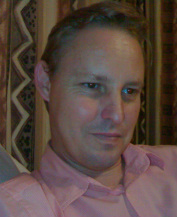Can Hypnosis Treat Cancer in Oxford?

According to the experts, the answer is a resounding yes! They claim that cancer is an emotional illness, and any good hypnotherapist will tell you that the quickest route to resolving negative emotions is through hypnosis.
In his ground breaking book “Answer Cancer”, hypnotist Stephen C. Parkhill writes “It’s thought that creates our destiny. If things go wrong it’s an act of mind”. He goes on to explain that “Holding in negative emotions is repression. It fills prisons, it kills and holy cow, does it sell a lot of medicine! Parkhill claims that “people will remain sick no matter how the symptoms are treated, as long as a calling for self mutilation exists in the subconscious mind of the patient”.
Could it really be that simple? Is it possible that negative emotions bottled up inside can lead to cancer? Is it just the hypnotherapists that hold this view? Parkhill’s ideas seem to be supported by other researchers working with cancer patients. In his book “You Can Fight For Your Life”, psychologist Dr Lawrence Le Shan says “In all the cancer patients seen during the course of my research - over 500 - not a single one seemed to me to have access to more emotional expression than he had energy to express. All seemed to have more emotional energy than they had ways of expressing it. Typically there was a “bottled-up” quality to their emotional lives. This was not true, however, for the control subjects who did not have cancer”.
So, if, as it would seem, cancer is an emotional illness, how would hypnosis help? Whilst not a hypnotherapist per se, world renowned healer and author Louise Hay, herself a cancer survivor wrote in her book “You Can Heal Your Life”, “Now I knew from personal experience that DIS-EASE CAN BE HEALED, IF WE ARE WILLING TO CHANGE THE WAY WE THINK AND BELIEVE AND ACT”. It’s interesting to note that hypnosis has been well researched and shown to be extremely effective in producing change.
Parkhill doesn’t mince his words as to whether his methods work or not. To his sceptics he says “I will repeatedly say this: Let us line up 200 chronically ill people. You take 100 and so will I. We will both implement our best techniques, and when the smoke clears and we have each taken our people as far as we can in the direction of health, the resulting score will let everyone know what works and what doesn’t.
Whether it is healing the sick or tuning the goal-oriented, I could make the same challenge by applying what I offer in this book to a team of athletes or a classroom of students. The results I get will wake up a lot of sceptics”.
Perhaps the future of cancer treatment will be the application of modern medicine balanced with hypnotherapy? Whatever the future holds, it’s clear that some practitioners are having wonderful success helping people with cancer right now.
In his ground breaking book “Answer Cancer”, hypnotist Stephen C. Parkhill writes “It’s thought that creates our destiny. If things go wrong it’s an act of mind”. He goes on to explain that “Holding in negative emotions is repression. It fills prisons, it kills and holy cow, does it sell a lot of medicine! Parkhill claims that “people will remain sick no matter how the symptoms are treated, as long as a calling for self mutilation exists in the subconscious mind of the patient”.
Could it really be that simple? Is it possible that negative emotions bottled up inside can lead to cancer? Is it just the hypnotherapists that hold this view? Parkhill’s ideas seem to be supported by other researchers working with cancer patients. In his book “You Can Fight For Your Life”, psychologist Dr Lawrence Le Shan says “In all the cancer patients seen during the course of my research - over 500 - not a single one seemed to me to have access to more emotional expression than he had energy to express. All seemed to have more emotional energy than they had ways of expressing it. Typically there was a “bottled-up” quality to their emotional lives. This was not true, however, for the control subjects who did not have cancer”.
So, if, as it would seem, cancer is an emotional illness, how would hypnosis help? Whilst not a hypnotherapist per se, world renowned healer and author Louise Hay, herself a cancer survivor wrote in her book “You Can Heal Your Life”, “Now I knew from personal experience that DIS-EASE CAN BE HEALED, IF WE ARE WILLING TO CHANGE THE WAY WE THINK AND BELIEVE AND ACT”. It’s interesting to note that hypnosis has been well researched and shown to be extremely effective in producing change.
Parkhill doesn’t mince his words as to whether his methods work or not. To his sceptics he says “I will repeatedly say this: Let us line up 200 chronically ill people. You take 100 and so will I. We will both implement our best techniques, and when the smoke clears and we have each taken our people as far as we can in the direction of health, the resulting score will let everyone know what works and what doesn’t.
Whether it is healing the sick or tuning the goal-oriented, I could make the same challenge by applying what I offer in this book to a team of athletes or a classroom of students. The results I get will wake up a lot of sceptics”.
Perhaps the future of cancer treatment will be the application of modern medicine balanced with hypnotherapy? Whatever the future holds, it’s clear that some practitioners are having wonderful success helping people with cancer right now.